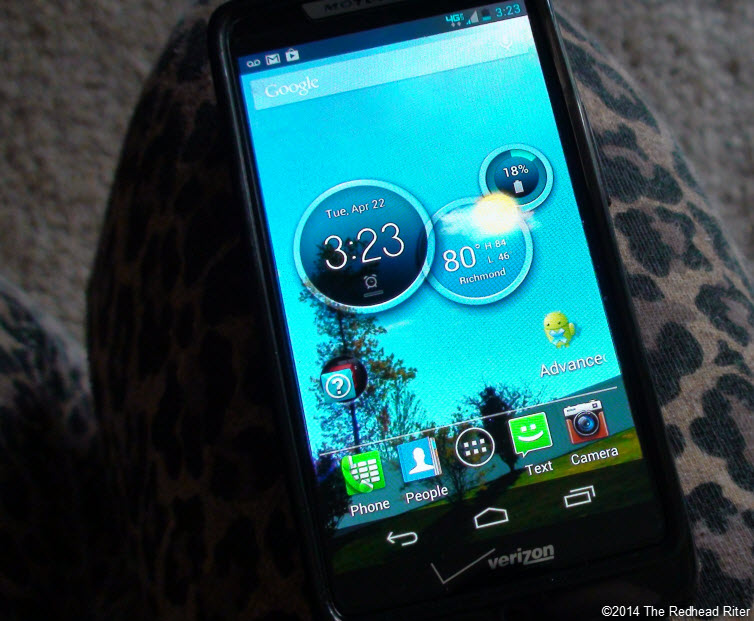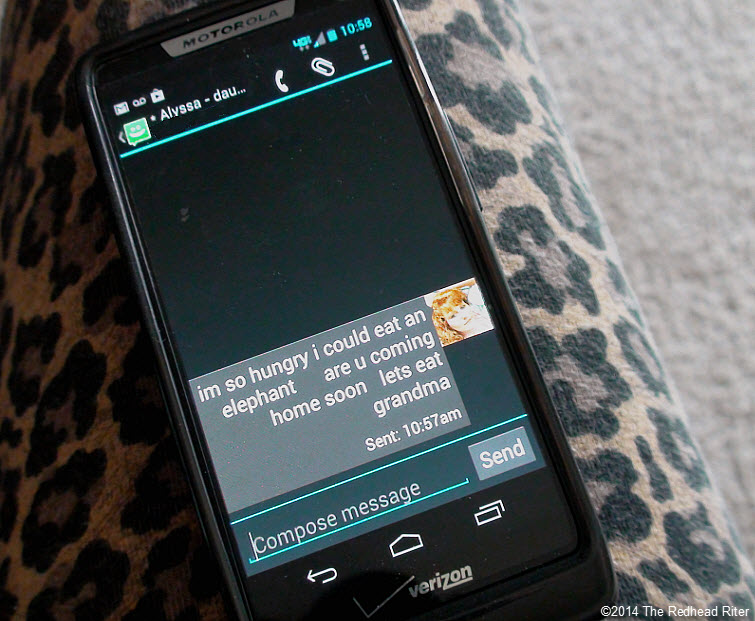
Technology is such a WONDERFUL thing if used correctly, however, it has come with costs that we should all remain aware of and take steps to ensure we don’t fall into the traps. It seems like every time I turn on the television, there are reality shows, movies and talk shows that talk about the effects of technology, so I’m going to share with you six of the negative effects of technology.
1. Obesity
Couch potatoes have gained so much weight that their health is threatened. A contributing factor is because they don’t exercise enough since they are watching television or playing games for hours on end. Electronics can destroy your health.
“According to the National Institutes of Health, obesity and overweight together are the second leading cause of preventable death in the United States, close behind tobacco use. An estimated 300,000 deaths per year are due to the obesity epidemic.
Here are some staggering facts about obesity:
- Obesity is associated with nearly 1 in 5 US deaths, according to a study published online August 15 in the American Journal of Public Health. The new data suggest obesity’s toll on Americans is more than 3 times previous estimates.
- Overweight and obesity were associated with 18.2% of all deaths among adults from 1986 through 2006 in the United States.
- More than one-third of U.S. adults (34.9%) are obese.
- Obesity-related conditions include heart disease, stroke, type 2 diabetes and certain types of cancer, which are some of the leading causes of preventable death.
- The estimated annual medical cost of obesity in the U.S. was $147 billion in 2008 U.S. dollars
- Obesity is higher among middle age adults, 40-59 years old (39.5%) than among younger adults, age 20-39 (30.3%) or adults over 60 or above (35.4%) adults.
- There is no significant relationship between obesity and education among men. Among women, however, there is a trend—those with college degrees are less likely to be obese compared with less educated women.
- By state, obesity prevalence ranged from 20.5% in Colorado to 34.7% in Louisiana in 2012. Higher prevalence of adult obesity was found in the Midwest (29.5%) and the South (29.4%). Lower prevalence was observed in the Northeast (25.3%) and the West (25.1%).
Using the latest and greatest technology does not mean you will become obese, however, you need to make staying healthy a very conscious decision.
2. Isolation
Less face-to-face communication and visiting because we have telephones and programs that let us see each other on the phone or computer. Social skills and social boundaries are disappearing. I read a staggering statistic in an article in TIME magazine written by Jeffrey Kluger.
“The number of text messages sent monthly in the U.S. exploded from 14 billion in 2000 to 188 billion in 2010, according to a Pew Institute survey, and the trend shows no signs of abating.”
In that same article, MIT psychologist Sherry Turkle, one of the leading researchers looking into the effects of texting on interpersonal development stated:
“The complexity and messiness of human communication gets shortchanged. Those things are what lead to better relationships.” She goes on to say, “Too much texting amounts to a life of “hiding in plain sight. And the thing about hiding is, it keeps you entirely alone.”
3. Conflict
Too many texts instead of face-to-face communication can lead to arguments. We can easily misunderstand the choppy wording, and because we can’t see body language or hear inflections in the speech, an entire conversation can be taken completely wrong.
Let me demonstrate how easy it is to misunderstand a text. If you received the following text, you would know that I’m really hungry, I’m wondering what time you are going to arrive home and I think it is taking you too long like an old lady, so I call you Grandma. It makes total sense.
“I’m so hungry I could eat an elephant. Are you coming home soon? Let’s eat, Grandma!”
But that isn’t how text messages are usually written. Most of the time people do not care about proper grammar, spelling, punctuation or even continuing the conversation instead of making you wait five or six hours to get a reply back.
Now let me demonstrate how the exact same words in the text above could be taken entirely wrong. If you received the following text, you would still know that I’m really hungry and I’m wondering what time you are going to arrive home. I’m probably more anxious about your arrival time because I’m so hungry that I suggest we become cannibals and eat Grandma. That’s enough food to satisfy a hunger! LOL
“im so hungry I could eat an elephant are you coming home soon lets eat grandma”
See what I’m talking about now?

Body language and voice inflection play a key role in communication. Non-verbal communication is completely absent in up to 40 percent of our communications.
I chose the grandma example because it was cute, but let’s choose an example that could actually lead to an argument between you and me if we were in a relationship. The text message comes through the phone looking like this:
“when are you coming home”
Based on what’s happening, punctuation and voice inflection could really make the sentence read differently.
- (A) As a simple question inspired by the fact that dinner is almost finished and I don’t want it to get cold, but if you’re going to be late I will go ahead and eat now and just wrap some up and leave it on the stove top for you.
- (B) A question excitedly asked because I just finished cooking your favorite dinner and I can’t wait to share it with you. In this instance, there would be a huge smile on my face that would be conveyed in the sound of my voice and the inflection of my words, but since this is a text, you can’t see or hear the smile.
- (C) An anxious and worried question because you said you would be home in ten minutes and since it is two hours later, I don’t know if you have been mugged, stranded on the highway, in a wreck or had some medical problem like a heart attack.
- (D) A question conveyed with anger because you said you would be home in ten minutes and not only is it two hours later, but since our relationship is already rocky, the total lack of respect you’ve shown by not arriving on time or calling to tell me you’re going to be late has pushed me over the edge.
“When are you coming home?”
“When are you coming home?”
“When are you coming home???!”
“When are you coming home?!!!!”
When the text was sent like this, “when are you coming home” and I meant it like (A), but you took it like (D), imagine the argument that would ensue upon your arrival home.
Texting is great and since Alyssa and I have texted thousands of texts, I’m a huge advocate for sending those blasts of communication back and forth. But it is imperative that you are conveying what you intend, when you feel it and how you mean it, so that communication remains clear and that a simple statement doesn’t turn into another botched attempt at staying in touch with the people you love.
4. Warped Reality
You can’t Photoshop your REAL face, body or your personality. But if you lack social skills and morals in real life and think it is okay because you are the most beautiful and clever person online, then your reality is totally warped. You’re missing the whole reason for living.
Changing like a chameleon online sets you up for failure, rejection and unhappiness. Learning to accept our faults and imperfections will help us to be more confident in all of our good traits and achievements.
“We are each gifted in a unique and important way. It is our privilege and our adventure to discover our own special light.” ~ Mary Dunbar ~
You might be able to delete a Facebook or Twitter account, but you can’t delete the traits of the real person you’ve become when you started on this false journey.
5. Relationship Decay
People are not just faces on the computer. They are real, flesh and blood human beings who eat, drive cars, work, have a home and family. What you say to them matters. People who already have partners can develop a strong emotional bond with someone else over the Internet. By having the online relationship, they are more likely to become aggravated with their current partner’s flaws and then begin to devalue the in-the-flesh relationship. The person starts wishing their real life partner was more like their online relationship. The more emotionally attached they become online, the less they have to give to their “real” romantic partner.
Emotional cheating is the first step to physical cheating whether the relationship begins online, in the workplace or at the corner coffee shop. So what activities are considered cheating by the vast majority of people? According to recent surveys, it is not acceptable for a partner or spouse to:
- Participate in sexual talk with someone else
- Flirt because it creates an emotional high they begin to crave
- Deny being in a relationship
- Write private emails or text messages that they promptly delete
- Set aside specific time to talk privately with the online attachment
- Share emotions and secrets that they don’t even share with their partner
- Say and do things with someone they never would do in front of their partner
- Constantly fantasize about the online relationship and person
A quick one question check to determine if you are emotionally cheating would be to ask yourself, “Would I feel guilty if my partner heard this conversation, read these emails and texts or saw us together?” If the answer is “yes,” then you are cheating.
Relationships are tough enough without adding this layer of dishonor and disrespect.
The saying, “You don’t know what you have until you’ve lost it,” holds true with losing your partner because of an affair. Psychologists and society agree that if you want to save your current relationship, you must:
- Take responsibility for your actions
- End the relationship completely and don’t rationalize “friendship”
- Take the time to understand why you did it
- Become trustworthy by being honest at all times and open with all actions
- If you want to rebuild the trust in your current relationship, you must do what the partner needs and be patient because it will take time for him/her to believe you again
Love is loyal and respectful in public and in private. Cheating isn’t always kissing, touching or flirting. If you have to delete text messages and make secret phone calls so your partner won’t see or hear them, you’ve already cheated emotionally. No relationship is perfect, but you can’t grow closer together with your partner if your emotions are divided and you’re investing them in other relationships. If you feel the need for that much clandestine attention from other people, everyone would be better off if you told them you’re just a player. Hurting someone like this is extremely purposeful and evil.
According to the American Academy of Matrimonial Lawyers, more than 80 percent of U.S. divorce attorneys say social networking in divorce proceedings is on the rise. One third of all divorce filings in 2011 contained the word “Facebook,” according to Divorce Online.
Surveys have shown that young adults spend up to seven hours a day using some form of technology and that obsessiveness with electronics can become an addiction. It also have proven that it can create relationship problems.
6. Bullying
It is so easy to hide behind a computer monitor and say any ugly, disrespectful thing you can think of to say. The anonymity that can exist on the Internet is the perfect playground for bullying and it is called cyberbullying.
Cyber bullying means that you use technology, like cell phones and the Internet, to bully another person. When someone is cyberbullied, some or all of the following occur:
- Mean or threatening emails, phone messages or texts.
- Hacking into someone’s online accounts and sending damaging messages.
- Circulating private sexual pictures of someone throughout the sites on the Internet in an effort to embarrass and harrass the person.
- Purposefully taking unflattering pictures of someone and posting them on social media sites and sending them through phone texts.
- Creating and spreading rumors on social media sites or through texts.
Here are some staggering national statistics on bullying:
- 28% of U.S. students in grades 6–12 experienced bullying and 20% of U.S. students in grades 9–12 experienced bullying.
- Approximately 30% of young people admit to bullying others
- 6% of students in grades 6–12 experienced cyberbullying. 16% of high school students in grades 9–12 were electronically bullied in the past year.
“Technology is nothing. What’s important is that you have a faith in people, that they’re basically good and smart, and if you give them tools, they’ll do wonderful things with them.” ~ Steve Jobs ~
Technology can assist in so many areas of life, but if we become obsessive, it can ruin our lives. Some of the greatest experiences in life have nothing to do with the latest technological advances…
Walking hand in hand on the beach with your partner.
Watching the sunrise with your parents.
Picking flowers and skipping rocks with your children.
Laughing with friends.
Hearing those precious three words, “I love you,” whispered in your ear.
We need to all control technology instead of letting it control us.
So while I sit here typing on my computer, with the music softly playing, the air condition blowing, the pump in Turtle’s tank purring, the refrigerator silently keeping my food cold, and the chandelier lighting the room, I reiterate that technology can be good. But don’t stick your head in the sand claiming ignorance because technology also can rob you of the most precious things in life.
And that’s my technology rant.


I laughed out loud at the misinterpretation of the text message, “Lets eat Grandma.” I remember the world before there were cell phones, text messaging, emails, computers and the internet. If my parents were alive today I wonder what they would think of this strange new world. 🙂
I remember those days too! I remember driving without a cell phone AND there was no radio in the car. It was always verrrrrrrrrrrrrry quiet! LOL